

Subscribe via RSS or know about updates first by getting on the newsletter.
Learning to program doesn't have to be so hard. Reading scattered blog posts and books isn't as effective as watching real projects being built and actively coding along with them. SymfonyCasts bridges that learning gap, bringing you video tutorials and interactive coding activities. Code on!
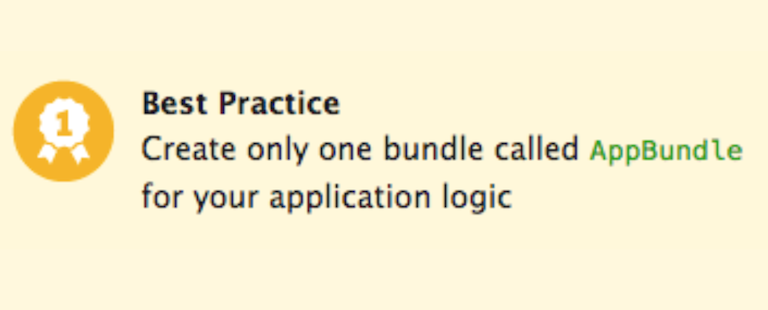
Ah, the AppBundle: my favorite part of the Symfony best practices.
RYAN, What are you an idiot!? That's a terrible idea!
Ok, not everyone agrees - it's cool :). But here's what's interesting: if you don't like the AppBundle, I bet I actually agree with your reasons.
What!?
Let's figure this out in 10 Steps.
I mean this with <3. We're using Symfony! This means you can do whatever you want. Nothing has changed in Symfony to prevent this, and nothing will. That's an awesome start.
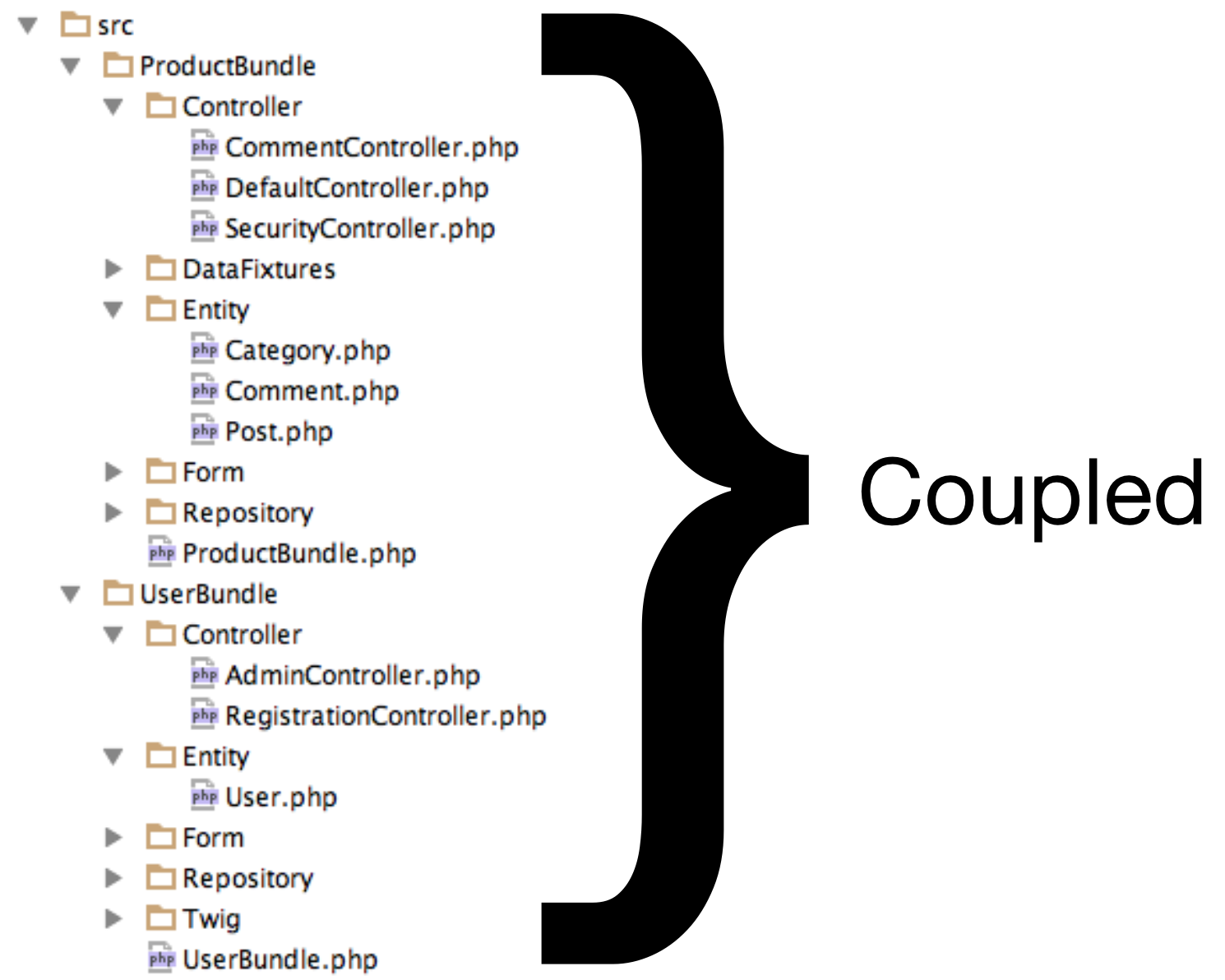
A traditional Symfony project is made up of bundles that are coupled together. Ok, maybe you have some standalone bundles, but somewhere, there's a group that are really coupled. And that's great! We're building an app here, not an open-source library. These coupled bundles are your app.
But in this case, they aren't really bundles: they're just directories. There's no technical advantage to having 1 or 10: we're just trying to organize things to our subjective liking.
A true bundle is a standalone, reusable entity. These are just directories.
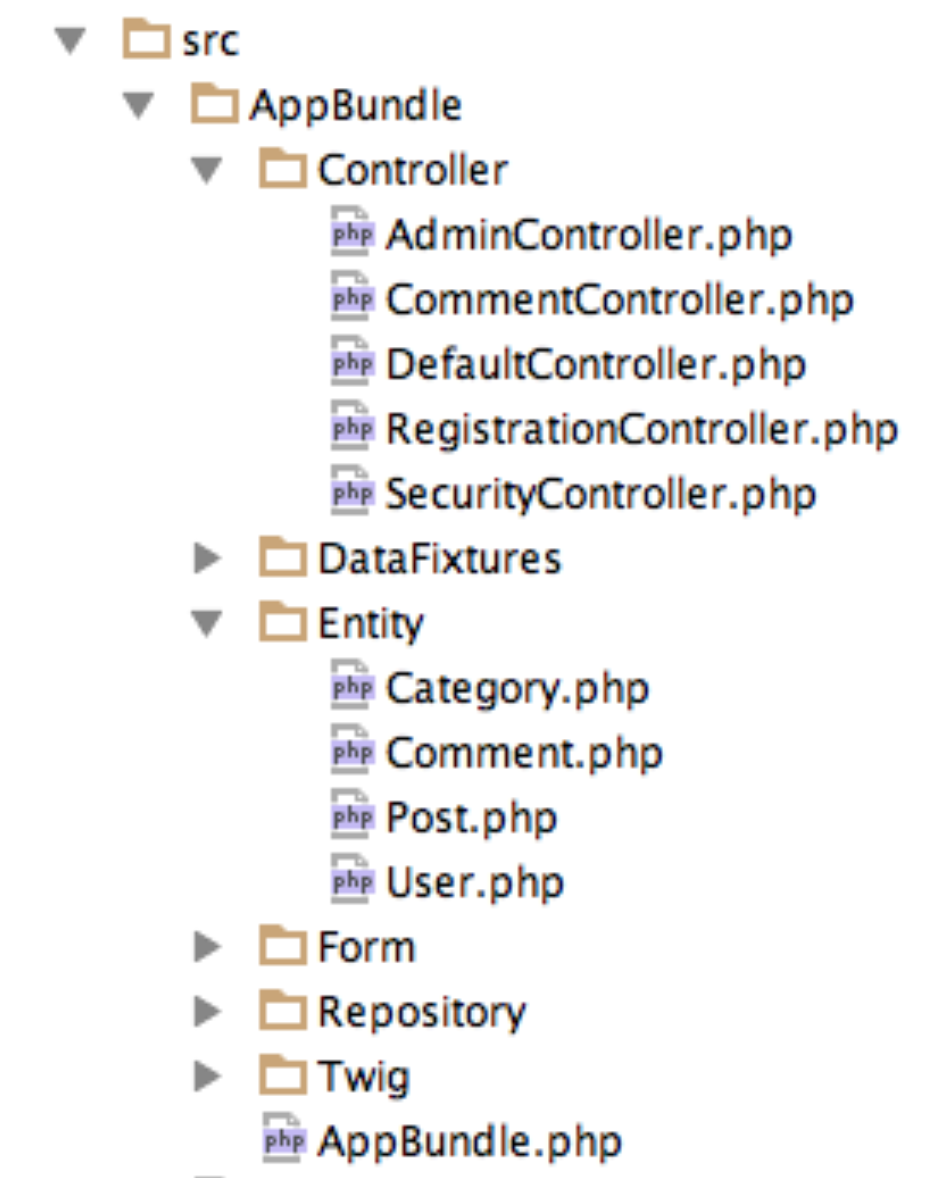
Now, if we decide to move everything into one bundle, it's nothing more than
a different directory structure. You can even keep the same amount of organization
by putting sub-directories in Controller or anywhere else.
You might like this, or you might not. The point is: it's subjective, there's no technical benefit of having multiple bundles.
Your application is AppKernel, and it lives in app/. It builds our
1 container, 1 compiled list of routes, 1 collection of translations, 1 group
of mapped entities and everything else. Even if you have these things spread
out across bundles, it's all loaded right here.
So why not move more things into app/? Remember, we're not planning on
re-using this stuff somewhere else.
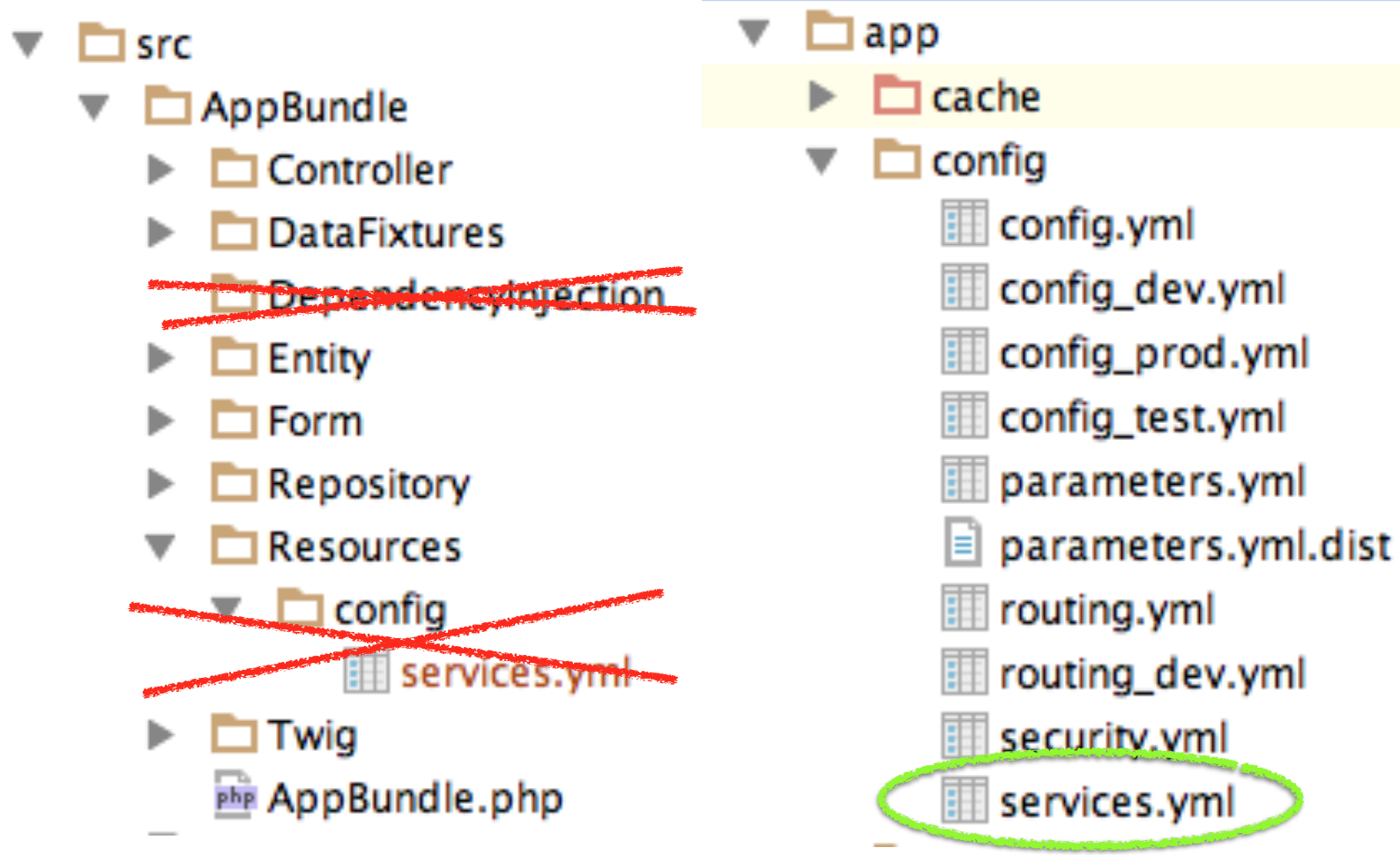
Since each kernel has only one container, it's logical to move service
config out of the bundle and into app/.
But if I move my service configuration out of my bundle it's coupled to my app
That's right! But it probably already was coupled. And if you do need to re-use something, great! Put it in a true, standalone bundle. Here, I'm talking about moving pieces out of bundles that are truly a part of your app.
Tip
Like with everything, if you have a lot of services, feel free to create
an app/config/services directory with multiple files.
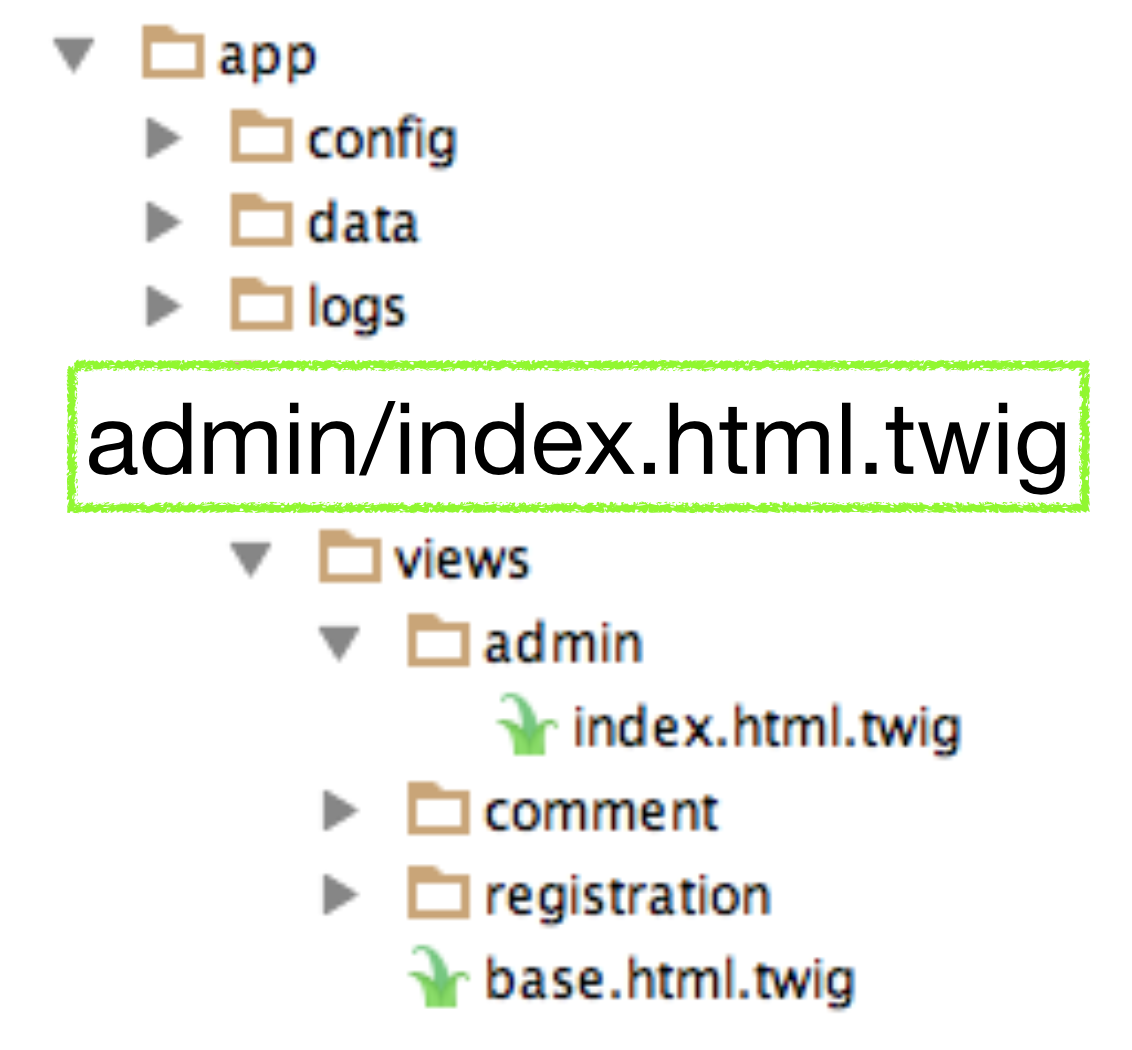
Next, let's move the templates into app/. I know many people hate this,
because it puts the templates in a different directory than the controllers.
That's subjective, but fair - and I talk about that later.
This is a subjective change, but it has one hidden improvement: you no longer need to use the weird three-part colon syntax. As a Symfony expert, you know this syntax. But I give a lot of trainings, and these Symfony-isms give beginners a lot of trouble.
Instead, you just render the filename. The only rule you need to know is
that templates live in app/Resources/views. This reduces complexity,
and that's huge.
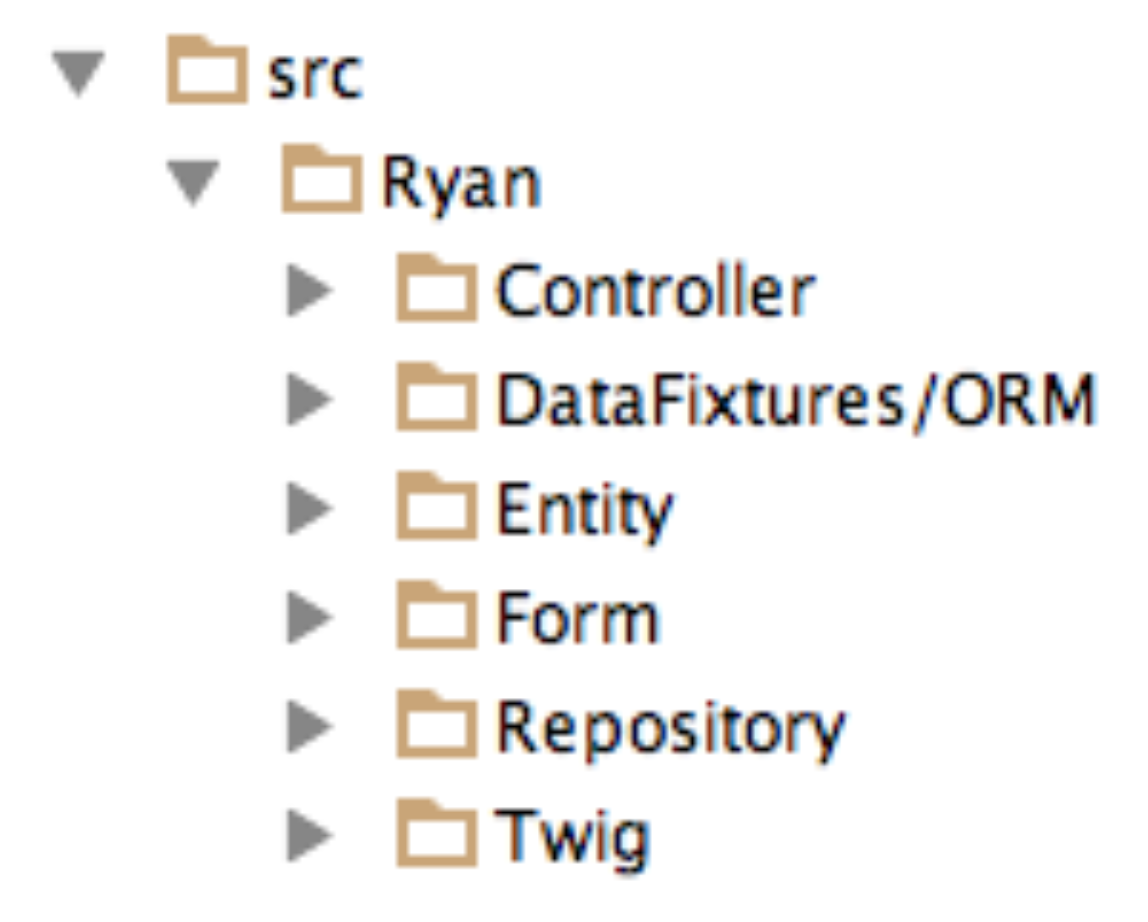
You can keep doing this until AppBundle holds only PHP classes.
But wait, why do we need a bundle at all then? You don't! A bundle is just
a directory! And we can rename directories! We could rename this to Ryan
and even delete the bundle file.
Tip
You can start thinking of AppKernel as your one "bundle". It can do anything a bundle can, including complex stuff like registering compiler passes.
So why isn't this the Symfony best practice instead of AppBundle? A few reasons:
Without a bundle, you lose a few shortcuts, like the _controller shortcut
and the automatic bundle aliasing for entities (e.g. AcmeDemoBundle:Post).
All of these are optional, but it's more work without them.
It would be a big philosophical leap, and change needs to be done carefully. Having only one bundle was a big enough change.
But philosophically, I do hope you'll think of your AppBundle as just
a directory for PHP classes. And for Symfony 3.0, maybe we'll get there!
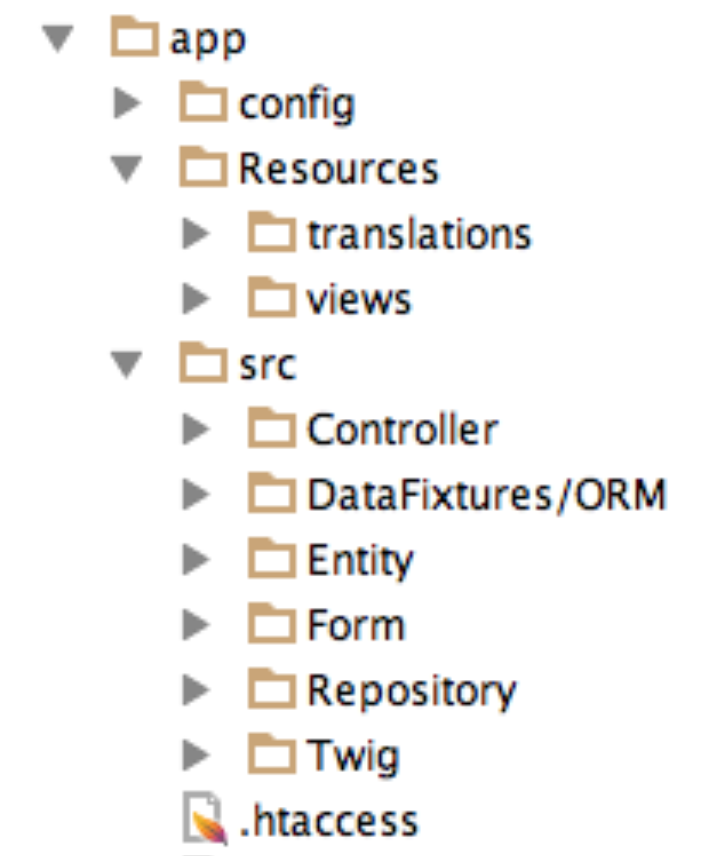
The biggest complaint I've heard about the AppBundle is this: I don't like
that my controllers would live in src/, but the templates they render
would live in app/.
That's subjective, but totally fair (it hasn't bothered me).
To solve this, we could move our Ryan directory (or AppBundle, before
my rename) into app/.
This works with no code changes except for a new autoload entry:
{
"autoload": {
"psr-4": { "Ryan\\": "app/src" }
}
}I'm not recommending that everyone runs and does this, but logically, everything
is coupled to app/, so it makes perfect sense. I hope it at least gets
you thinking!
Tip
Still want the templates closer to the controllers? No problem, keep
them in AppBundle :).
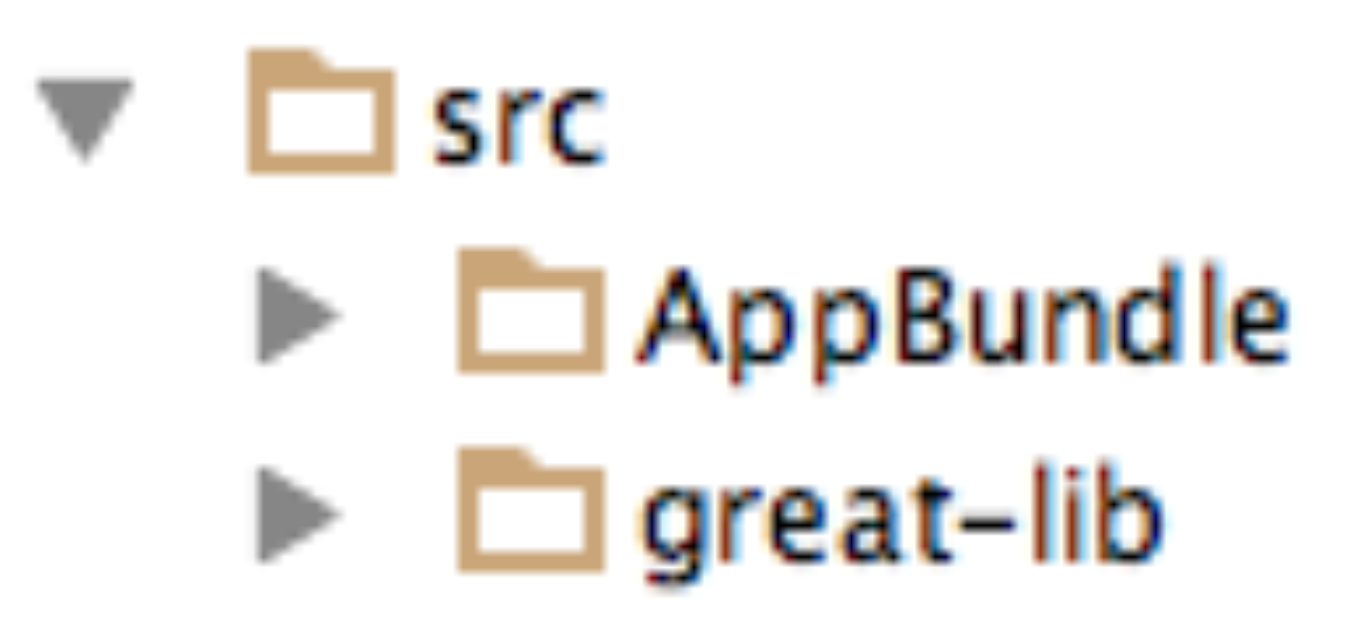
Sweet! Just create a directory in src/ and put your decoupled library
right there. It's ready to be re-used!
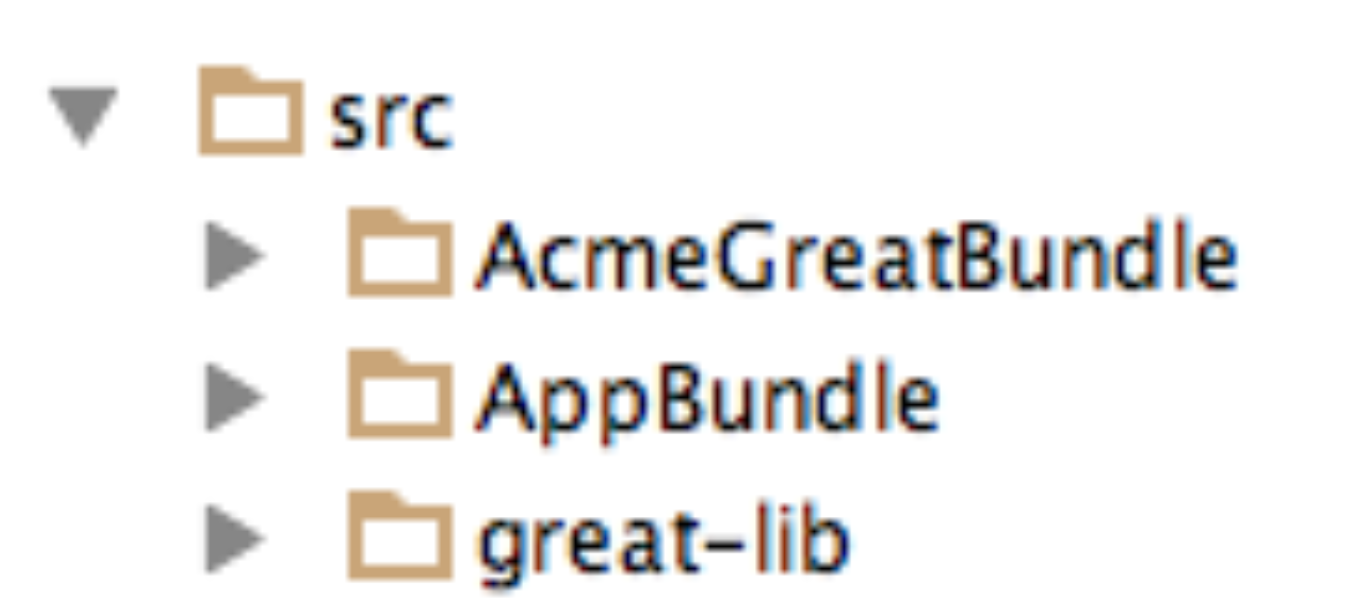
Nice! Just create the bundle in src/ (or vendor/, etc) and treat
it like true, decoupled bundle.
Still feel like you need more bundles? No worries - create as many as you
want. But don't be afraid to choose one bundle that you really couple
to your app/ directory - it might just make your life simpler.
Multiple kernels? Sounds like a neat project :). You should have one super-coupled
bundle per kernel. For example, WebKernel & WebBundle, ApiKernel
and ApiBundle. If you need to share things between kernels, put this
into proper, de-coupled bundles that are booted by each kernel.
One main argument against the AppBundle is that you should make your code modular. I agree! But having 1 directory or 10 doesn't make a difference. But these things do:
creating service classes, with minimal dependencies (+ skinny controllers);
(if applicable) identifying parts of your code that you truly need to re-use between projects/kernels and writing them as proper bundles or libraries;
potentially creating multiple, focused apps (e.g. backend API, frontend app, separate app for handling jobs, etc).
So even if you don't like the AppBundle, I hope you'll see that it has nothing to do with writing more or less modular code. That's still up to you :).
<3 Ryan